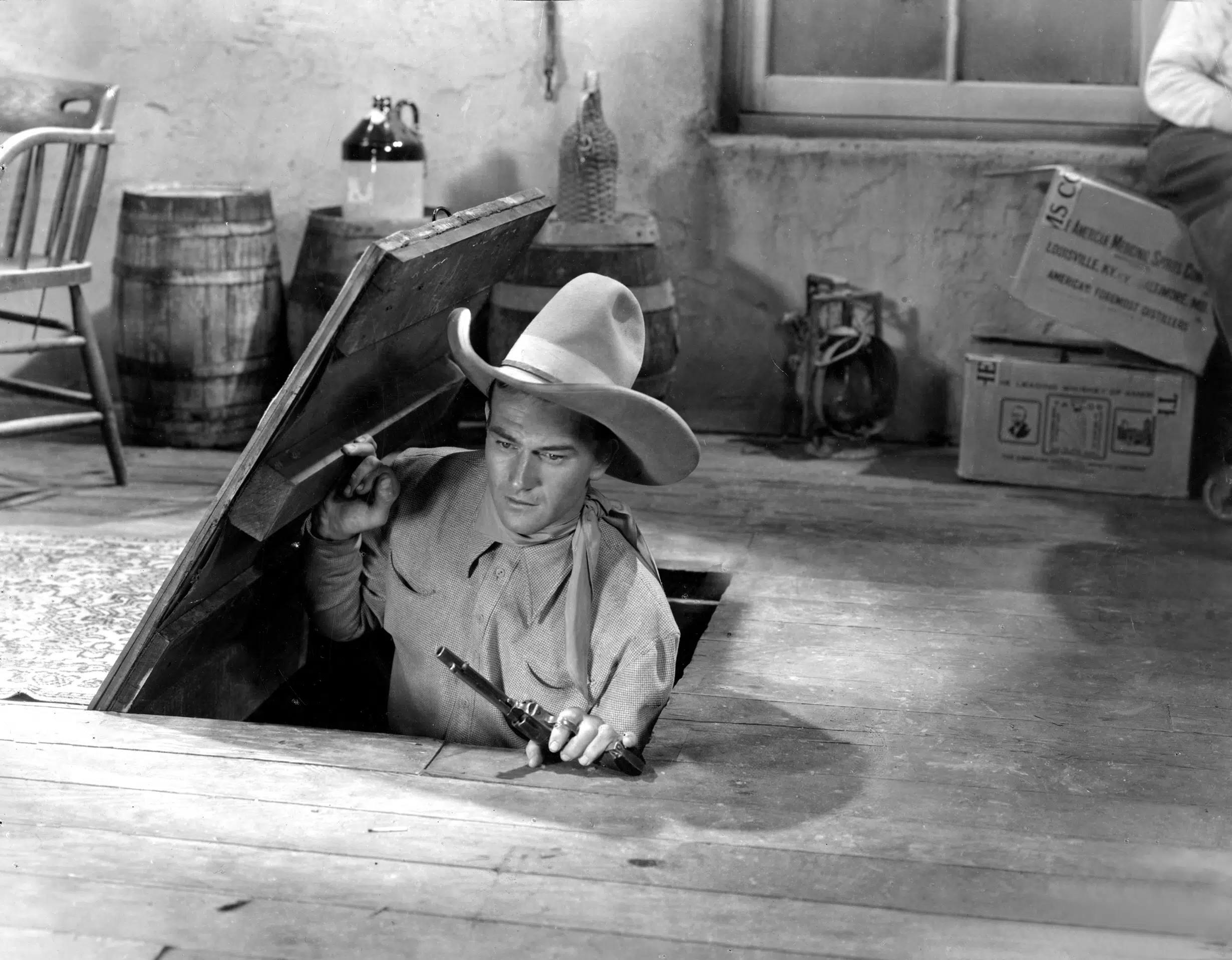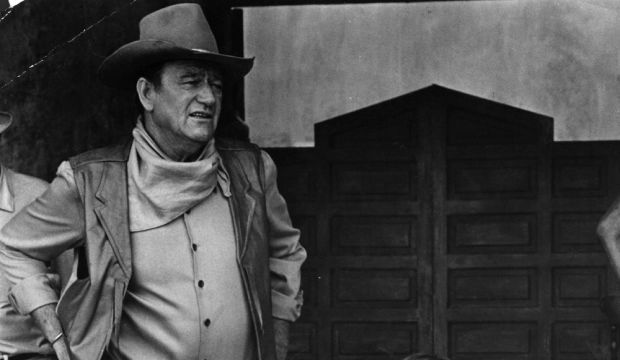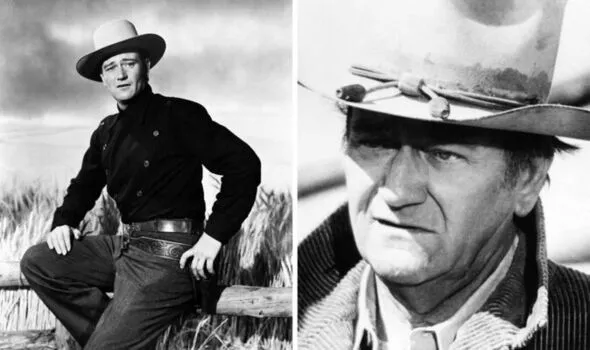JOHN WAYNE had to start his career like everybody else – at the bottom. Long before he was Hollywood’s main leading man, he began his career in the silent era as an assistant on production teams. In one film, John Ford’s 1928 classic Four Sons, the future star had an “exasperated tantrum” on set – but it helped his film career.
John Ford may be best known for his talkies years later (including Stagecoach, The Grapes of Wrath and Fort Apache to name but a few) but his silent era was just as influential on the industry. Tragically, most of his silent films are now lost to time, but the ones that remain are held dear for their historic and cinematic importance.

Having directed over 140 movies across his career, he and John Wayne paired together on 14 releases which saw the star get in front of the camera. Before that, they worked together in a very different capacity, as a young Wayne helped the production crews. On Four Sons, he had one particularly bad day putting him in a “tedious position.”
The film followed Mother Bernle (played by Margaret Mann), a Bavarian widow and mum to four children – Franz (Ralph Bushman), Johann (Charles Morton), Andreas (George Meeker) and Joseph (James Hall).
Three of her sons fight in Worlds War One on the side of Germany, while one fights for America, with the two sides eventually becoming enemies.
In the 1999 book Hourly History’s John Wayne: A Life From Beginning to End, the author went into detail about the unexpected fury Wayne flew into on set one day after being forced to carry out an infuriating task multiple times.
The book explained Wayne was ordered to continuously “dump leaves, sweep them up, and then dump them again” between repeated takes.

The tome read: “Although innocuous in nature, this scene was very important for the production team and had to be done several times in order to get it just right.”
Eventually, the actor – who would go on to win an Academy Award for the 1969 film True Grit. – decided he had had enough.
The book went on: “Wayne was growing weary of the retakes, and somewhere along the way lost his order of operations and found himself sweeping up leaves when he should have been dumping them, completely messing up the shot. The crew was frustrated, but when Wayne realized what he had done, he was even more aggravated and threw his broom down, marching right off the set in what amounted to an exasperated tantrum.”
Luckily for Wayne, it all ended well for him. The star’s actions didn’t put him in hot water, instead, it actually drew Ford’s attention to the young actor. The book notes: “Ford was apparently once again entertained by what he perceived to be John Wayne’s sense of comic relief in action.”
But for Wayne fans rushing to watch it to catch the star in an early role – they will have to keep their eyes peeled. The film has become famous for including one of the star’s earliest performances. On IMDb he is listed as “Officer (uncredited)”.

For film historians, the movie is a real gem for the mere fact it still exists. It came at a time before film preservation was considered essential. For most of the studios (including Fox which produced this), silent films were viewed as having little future and were intentionally destroyed. At the end of the silent era, many considered silent films worthless and studios made little effort to keep them (excruciatingly painful for many film lovers now).
Fox later remade Four Sons as a talkie in 1940 with Archie Mayo in the director’s chair. He is best known for 1930’s Vengeance, 1936’s The Petrified Forest, 1928’s The Crimson City and 1923’s All Over Twist.
The cast included Don Ameche as Chris, Mary Beth Hughes as Anna, Alan Curtis as Karl, George Ernest as Fritz, Robert Lowery as Joseph and Eugenie Leontovich as Frau Bern (her debut as an actress).
